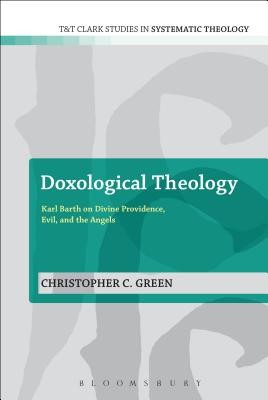
- We will send in 10–14 business days.
- Author: Christopher C Green
- Publisher: Bloomsbury Publishing PLC
- ISBN-10: 0567196518
- ISBN-13: 9780567196514
- Format: 15.6 x 23.4 x 1.3 cm, softcover
- Language: English
- SAVE -10% with code: EXTRA
Reviews
Description
In 1949, Karl Barth confidently upholds a high doctrine of divine providence, main-taining God's control of every event in history. His argument is at once cheerful, but also defiant in the face of a Europe that is war-weary and doubtful of the full sovereignty of God.
Barth's movement to praise God shows his affin-ity for the Reformed theological tradition. While Barth often distances himself from his Calvinist predecessors in important ways, he sees his own view of providence to be a positive reworking of the Reformed position in order to maintain what he un-derstands as its most important insights: the praiseworthiness of the God of provi-dence and the doxology of the creature. Doxological Theology investigates how the theologian, in response to the praiseworthy God of the Reformed tradition, is ex-pected to pray his or her way through the doctrine of providence.
EXTRA 10 % discount with code: EXTRA
The promotion ends in 18d.01:08:20
The discount code is valid when purchasing from 10 €. Discounts do not stack.
- Author: Christopher C Green
- Publisher: Bloomsbury Publishing PLC
- ISBN-10: 0567196518
- ISBN-13: 9780567196514
- Format: 15.6 x 23.4 x 1.3 cm, softcover
- Language: English English
In 1949, Karl Barth confidently upholds a high doctrine of divine providence, main-taining God's control of every event in history. His argument is at once cheerful, but also defiant in the face of a Europe that is war-weary and doubtful of the full sovereignty of God.
Barth's movement to praise God shows his affin-ity for the Reformed theological tradition. While Barth often distances himself from his Calvinist predecessors in important ways, he sees his own view of providence to be a positive reworking of the Reformed position in order to maintain what he un-derstands as its most important insights: the praiseworthiness of the God of provi-dence and the doxology of the creature. Doxological Theology investigates how the theologian, in response to the praiseworthy God of the Reformed tradition, is ex-pected to pray his or her way through the doctrine of providence.


Reviews